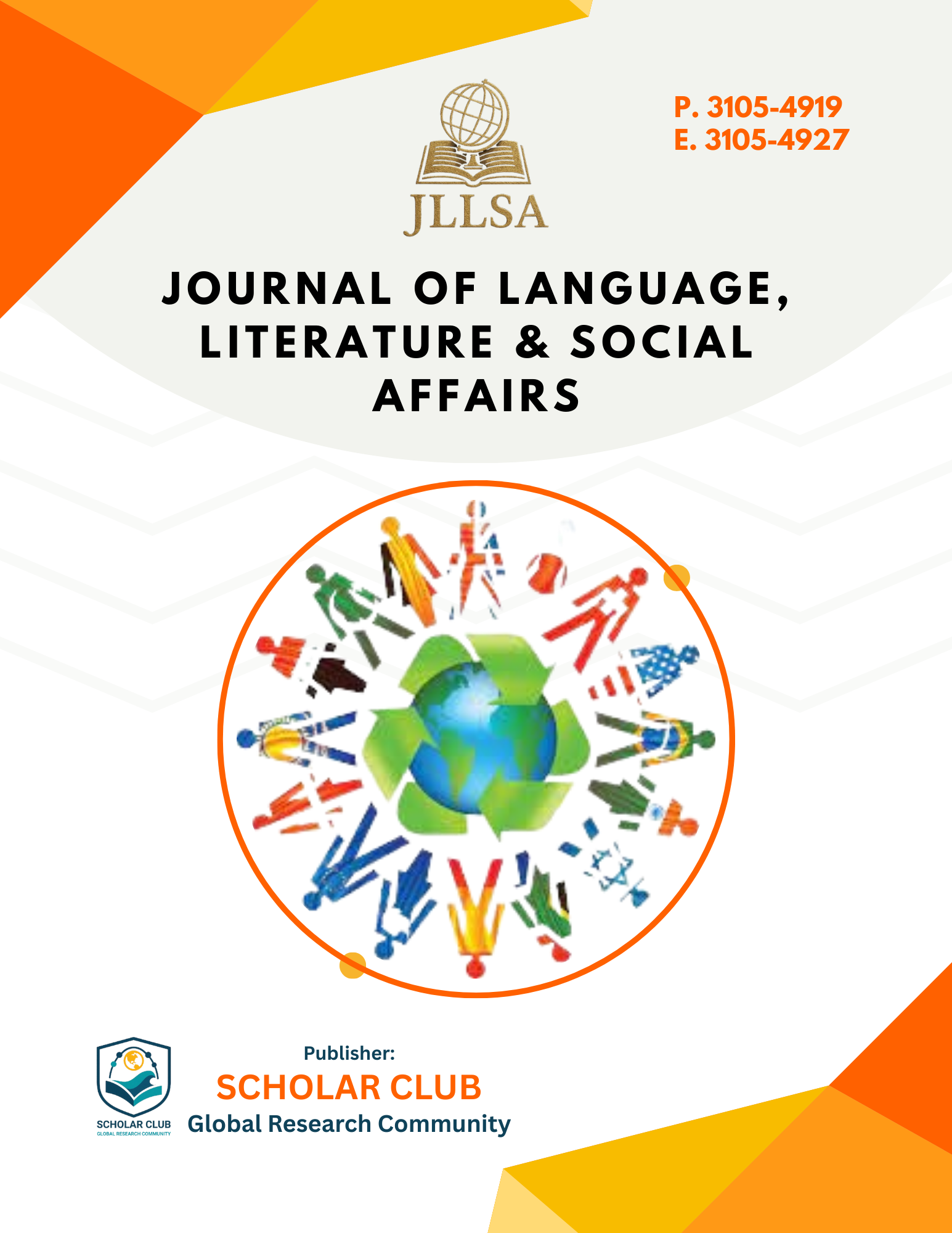Changez’s Internal Conflict: A Postcolonial Reflection on Identity and the Critique of Western Dominance
DOI:
https://doi.org/10.63056/jllsa.1.4.2025.67Keywords:
Changez, The Reluctant Fundamentalist, postcolonial identity, hybridity, Orientalism, inner struggle, western hegemonyAbstract
This research paper examines the internal conflict in Changez of The Reluctant Fundamentalist by Mohsin Hamid (2007) as an expression of post colonial identity conflicts and criticism of Western supremacy. The paper is based on the postcolonial theory and uses the concept of Orientalism proposed by Edward Said, the ideas of hybridity, mimicry, unhomeliness introduced by Homi K. Bhabha, and the ideas of colonial alienation introduced by Frantz Fanon to outline the split identity of Changez. The story of Changez illustrates how racial bias, cultural alienation, and geopolitical tensions disorient the bicultural individuals, especially during the post-9/11 period. The results emphasize that hybridity does not make people harmonious but disjointed, estranged, and psychologically unstable. The fact that Changez cannot balance his two identities is manifested by postcolonial realities of exclusion and belonging and puts his story in the context of global challenges of identity politics, colonial legacies, and Western hegemony resistance.
Downloads
Published
How to Cite
Issue
Section
License
Copyright (c) 2025 Shafqat Ullah, Ghanwa Asad, Syed Muzamal Abbas Shah

This work is licensed under a Creative Commons Attribution 4.0 International License.







